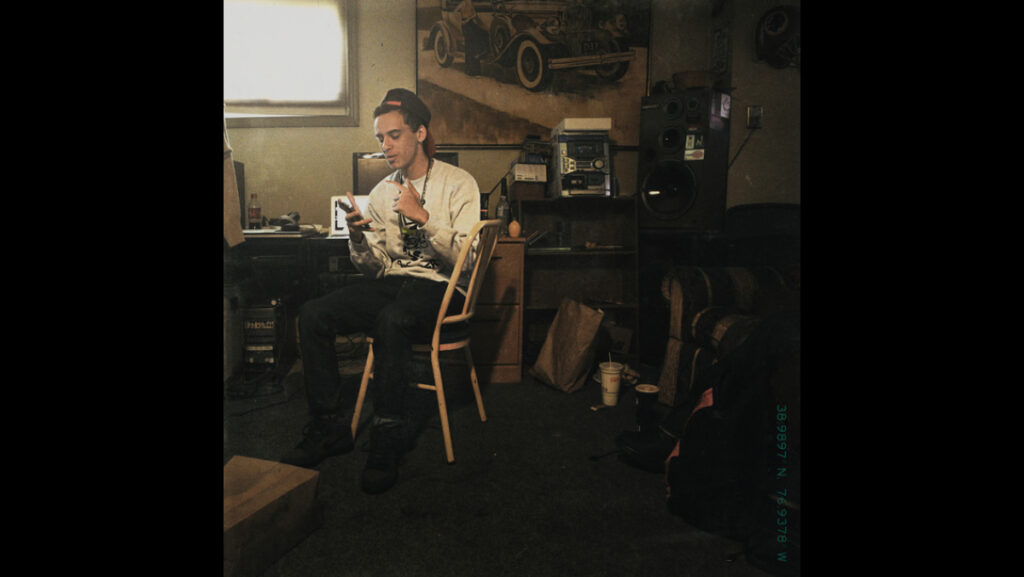In his latest album, “College Park,” Logic reminisces about the days he was living in rapper Big Lenbo’s basement in College Park, Maryland, when he was homeless in 2011.
While Logic has previously made music about serious issues, like suicide in the song “1-800-273-8255,” which featured singers Alessia Cara and Khalid, he has never really spoken much about the time he was homeless. Now fans of Logic are treated with a 17-track album that reveals more about himself with heartfelt music and strong narration.
“College Park” opens with “Crusin’ Through the Universe,” which features RZA. The melodic song has a casual beat accompanied by a calm guitar. Despite the long intro of the repeated lyrics “Crusin’ through the Universe” in the first half of the song, the second half of the song makes up for it. RZA delivers a clean section that addresses relevant topics like COVID-19 and gun violence. The song ends with RZA rapping, “They say life is but a dream, but I say that you could dream it too,” followed by engaging narration from Logic and Big Lenbo, in which Logic reveals that he was having a dream about collaborating with RZA.
The album continues with “Wake Up,” which features Lucy Rose. The song has a more intense beat than “Crusin’ Through the Universe” as Logic rapidly raps about the difficulties of living in College Park. The lyrics, “This shit that I’m writin’, the shit that I’ve been through / I went through the worst, but I made it out,” allows the listener to understand Logic’s life before he was famous and the steps he took to get to where he is today.
Logic also talks about the media stereotyping urban neighborhoods as he raps, “Lot of brothers in the hood doin’ good / And I know I see it all the time / But they only wanna push / All the drugs and all the crime on Channel 9.” Though only for a brief moment, Lucy Rose narrates a stunning opening narration for Logic and his friends, marking the start of Logic’s journey as an artist.
The album is filled with bangers like “Shimmy,” “Lightsabers,” featuring rapper C Dot Castro, and “Highlife.” But, where the album truly shines are some of the guests that appear on “College Park” along with how Logic uses them.
Features are some of the things that many listeners look forward to and “College Park” doesn’t disappoint with its many guests. “Self Medication” features Redman, Statik Selektah and Seth MacFarlane. However, MacFarlane’s appearance is the highlight of the track as he beautifully sings toward the end of the song. “Self Medication” combines hip-hop with a hint of jazz, which brings a bit of sophistication to the song.
Another surprising feature was “Paradise 2,” which features Norah Jones. This song also has a bit of a jazzy feel to it but is a lot more relaxed. Logic’s fast bars, combined with Jones’ sweet voice, make this one of the standout tracks of the album.
In the last song of the album, “LightYear,” Logic raps about his skepticism about being a rapper. Logic mentioned how he feels that he is trapped in a box as a rapper. Then, in the second half of the song after the dialogue between him and Big Lenbo, he does a complete 360 and sings with a slow guitar. After remembering his life before becoming famous, Logic looks at his life now in an emotional track that will surely have fans sympathizing with him.
Overall, “College Park” feels like Logic’s autobiography as he takes the listener through his rise to fame. The use of narration provided great detail about Logic and can make the listener feel as if they are with him in each moment. “College Park” is a gift for long-time listeners who have supported him from the beginning. The last two songs of the album, “Ayo” and “LightYear”, are great examples of Logic’s gratitude to his fans and the people that helped him along the way. In “Ayo,” Logic says, “I just wanna shout out every single person out there supportin’, man / Yo, you have my word, like, I love y’all.”




















